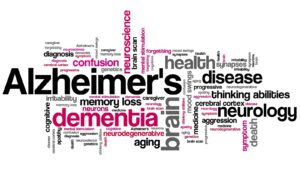When somebody you care about has been diagnosed with Alzheimer’s or another type of dementia, both of you may go through a series of steps before you reach true acceptance. Denial, bargaining, and then ultimately acceptance may come along, but what happens in the meantime?
For those seeking the right type of elder care for themselves or an aging parent or other loved one, assisted living is truly the answer. Not all assisted living communities are the same, though, which is why it’s so important to do your research, your due diligence.
A memory care facility is going to be equipped not only with experienced staff members and knowledge, but activities, strategies, and safety features that make all the difference for those seniors moving throughout the various stages of this disease.
Denial can affect everything.

Assisted Living Satsuma, AL: Seniors and Dementia
For a person who remains stuck in denial, getting adequate care can prove to be futile. It doesn’t matter what type of elder care you seek, rely on, or try, if that person continues to be in denial, they are going to constantly be fighting every step of the way.
For you and the rest of your family and network of friends, you may very well see a wide range of symptoms and understand what’s happening. Your elderly parent or grandparent, spouse, friend, or sibling, for example, may have already been told they have Alzheimer’s or another type of dementia by their primary care physician.
You might have witnessed a lack of personal hygiene, continuing to insist that they can drive when there is a track record of accidents, mishaps, or close calls, poor decision-making, difficulty in handling even the most basic of daily tasks, or even making things up, accusing you and others of stealing from them, wanting to do them harm, or something more egregious.
What can you do to help?
Find the right memory care assisted living community in the area that can best support this individual. Once you find that facility, determine whether they offer respite care services. Or options.
These might include short-term stays, overnight stays, daytime drop-offs and activities, or a few days during the week.
You can also stop, take a long, deep breath, and remember they aren’t being obstinate, stubborn, or maliciously accusatory on purpose. It’s the disease taking root. It’s affecting their behavior, the way they think and the way they process information.
Second, you can avoid pointing out their infirmities, their failures. They already understand things are not the same. They know full well the struggles they’re facing. They don’t need you to remind them of each and every episode.
Third, reduce as many responsibilities as you can from them. If you have the ability and they trust you, you might be able to begin paying their bills, preparing their meals, running errands, or doing their laundry.
These are some of the things a quality memory care facility will take on (aside from paying bills, that is) to support their elderly residents who have been diagnosed with dementia or Alzheimer’s or are dealing with some other cognitive impairment in the winter of their years.


Follow Us!